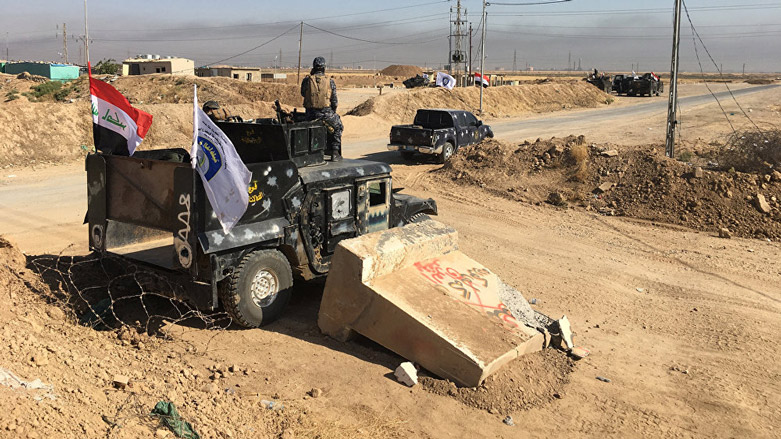Iraqi forces in Kirkuk defend against rather than attack IS: Ousted Police Chief

ERBIL (Kurdistan 24) – The balance of power has changed in the province of Kirkuk since the Oct. 16 military takeover, a former Kurdish police director says, noting the Islamic State (IS) is on the offensive while Iraqi forces only defend.
IS remains active in approximately 500 villages, Brigadier General Sarhad Qadir, Kirkuk’s former Suburban Police Chief, told KDP news website on Saturday.
Qadir, an experienced police director in Kirkuk, has been in office since 2003 and played a pivotal role in bringing stability to the province over the past two decades as well as eliminating the extremist group’s threat from inside Kirkuk.
“When Kirkuk was cleared from Da’esh, their militants remained present in the Riyadh, Rashad, and Zab areas. Iraqi forces did not clear the region from Da’esh, which includes over 500 villages stretching to Hamreen Mountains, Wadi Zarga, and Zaitun,” he said, using the Arabic pejorative for IS.
Following the emergence of IS in 2014, Qadir along with other security and Peshmerga forces were able to protect Kirkuk from the extremist’s attacks. However, after the Oct. 16 assault by Iraqi forces and Shia militias, Qadir and other Kurdish security and Peshmerga forces were forced to withdraw from the province.
Iraqi forces and the Shia militias militarily took over Kirkuk on Oct. 16, weeks after the Kurdistan Region’s controversial independence referendum which saw overwhelming support for statehood.
Since then, Kirkuk has witnessed an increase in instability and IS attacks.
Soon after the October attack, Qadir was removed from his post, and his police directorate dismantled.
“After the Oct. 16 incident, Da’esh re-grouped and became an organized force that attacked Iraqi forces on a daily basis. They have sleeper cells inside Kirkuk city and want to launch attacks on different areas.”
He mentioned that the militant group’s concern is to successfully carry out their insurgency missions rather than the number of forces within their ranks.
“Death does not scare Da’esh militants. The most important thing for them is to carry out the attacks successfully,” the senior Kurdish police officer, who is currently residing in Erbil, stated.
“Before, Iraqi forces were attacking Da’esh, but now, the balance of power has changed. Da’esh continuously attacks, and Iraqi forces defend,” Qadir continued. “Obviously, the force attacking is stronger than the one defending.”
The former Kurdish police chief believes there is a reason the extremist group is gaining strength in the ethnically-diverse province of Kirkuk as instability rises.
“The force that is now in charge of Kirkuk is not made up of all the components of Kirkuk and does not protect all the people; rather, it is made of one component. Therefore, the Peshmerga and other Kirkuk security forces must return to the province,” Qadir explained.
“In the past 14 years, we did not allow fighting to take place inside Kirkuk city, but rather always fought on the outside. Now, it is the opposite. For many areas, Iraqi forces abandoned the region without defending the people, especially in Kakai villages [in Daquq district] where many of the people are evacuating with 11 Kakais already kidnapped.”
Although Iraq declared a military victory over IS in December 2017, the extremists continue their guerrilla-style attacks, assassinations, and bombings across the country.
The security situation considerably deteriorated in the following months, with IS activities, such as ambushes, kidnappings, suicide attacks, and executions, increasing in the provinces of Kirkuk, Diyala, and Salahuddin.
Editing by Karzan Sulaivany
